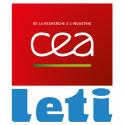3.8 Hot Topic - Design Methodologies for a Cyber-Physical Systems Approach to Personalized Medicine-on-a-Chip: Challenges and Opportunities
Date: Tuesday 10 March 2015
Time: 14:30 - 16:00
Location / Room: Salle Lesdiguières
Organiser:
Krishnendu Chakrabarty, Duke University, US
Chair:
Paul Pop, Technical University of Denmark, DK
Co-Chair:
Mohammad Abdullah Al Faruque, University of California Irvine, US
Modern stressful and sedentary lifestyles coupled with inadequate, irregular and inappropriate sleep patterns and diet have contributed not only to increased prevalence of chronic diseases but also to increased healthcare costs. To address these emerging clinical and healthcare challenges, in this special session, we advocate for a cross-disciplinary approach to cyber-physical systems design (CPS) aiming at seamlessly and safely integrate sensing, computation, communication, control and actuation for developing new technology for personalized and precise medicine.
| Time | Label | Presentation Title Authors |
|---|---|---|
| 14:30 | 3.8.1 | ERROR RECOVERY IN DIGITAL MICROFLUIDICS FOR PERSONALIZED MEDICINE Speakers: Mohamed Ibrahim and Krishnendu Chakrabarty, Duke University, US Abstract Due to its emergence as an efficient platform for point-of-care clinical diagnostics, design optimization of digital-microfluidic biochips (DMFBs) has received considerable attention in recent years. In particular, error recoverability is of key interest in medical applications due to the need for system reliability. Errors are likely during droplet manipulation due to defects, chip degradation, and the lack of precision inherent in biochemical experiments. We present an illustrative survey on recently proposed techniques for error recovery. The parameters of the error-recovery design space are shown and evaluated for these schemes. Next, we make use of these evaluations to describe how they can guide error recovery in DMFBs. Finally, an experimental case study is presented to demonstrate how an error-recovery scheme can be applied to real-life biochips. Download Paper (PDF; Only available from the DATE venue WiFi) |
| 15:00 | 3.8.2 | A CYBER-PHYSICAL SYSTEMS APPROACH TO PERSONALIZED MEDICINE: CHALLENGES AND OPPORTUNITIES FOR NOC-BASED MULTICORE PLATFORMS Speaker: Paul Bogdan, University of Southern California, US Abstract This paper describes a few fundamental challenges concerning the design of Network-on-Chip (NoC) based multicores as the backbone of cyber-physical systems (CPS) for personalized medicine. One fundamental challenge in designing such CPS architectures is the need for a unifying mathematical description of the dynamical interactions between bio-physiological processes and cyber states. Another fundamental challenge is to build a rigorous mathematical optimization framework that allows the CPS to adapt to varying workloads and demands. To enable large-scale parallelism, we need a rigorous understanding of the CPS workloads that can guide the design and optimization of wired and wireless NoCs. We advocate for the development of goal-oriented self-organization algorithms that seek to both optimize specific design cost functions and maximize information about future system state. It is necessary to identify basic local rules of interaction not only for solving large scale optimization problems in a distributed fashion, but also for inducing an overall degree of autonomy and intelligence in the CPS architecture. Download Paper (PDF; Only available from the DATE venue WiFi) |
| 15:30 | 3.8.3 | ON-CHIP NETWORK-ENABLED MANY-CORE ARCHITECTURES FOR COMPUTATIONAL BIOLOGY APPLICATIONS Speakers: Turbo Majumder1, Partha Pande2 and Ananth Kalyanaraman2 1Indian Institute of Technology Delhi, IN; 2Washington State University, US Abstract Computational molecular biology applications are at the heart of the backend processing in cyber-physical systems when applied to domains such as drug discovery, personalized medicine and genetic disease risk assessment. These applications are characterized by the preponderance of data and computational complexity, and yet require reasonably fast processing in order to have any meaningful impact. As such, hardware acceleration for these applications have generated a lot of research interest. In this paper, we discuss the superiority of Network-on-Chip (NoC)-enabled many-core platforms over other conventional platforms in both the quantum of speedup achieved and the amount of energy consumed. We hence posit that research in NoC-enabled platforms for CPS applications will be a major enabler of future scientific and medical breakthroughs. Download Paper (PDF; Only available from the DATE venue WiFi) |
| 16:00 | End of session Coffee Break in Exhibition Area Coffee Break in Exhibition AreaOn all conference days (Tuesday to Thursday), coffee and tea will be served during the coffee breaks at the below-mentioned times in the exhibition area. Lunch BreakOn Tuesday and Wednesday, lunch boxes will be served in front of the session room Salle Oisans and in the exhibition area for fully registered delegates (a voucher will be given upon registration on-site). On Thursday, lunch will be served in Room Les Ecrins (for fully registered conference delegates only). Tuesday, March 10, 2015Coffee Break 10:30 - 11:30 Lunch Break 13:00 - 14:30; Keynote session from 13:20 - 14:20 (Room Oisans) sponsored by Mentor Graphics Coffee Break 16:00 - 17:00 Wednesday, March 11, 2015Coffee Break 10:00 - 11:00 Lunch Break 12:30 - 14:30, Keynote lectures from 12:50 - 14:20 (Room Oisans) Coffee Break 16:00 - 17:00 Thursday, March 12, 2015Coffee Break 10:00 - 11:00 Lunch Break 12:30 - 14:00, Keynote lecture from 13:20 - 13:50 Coffee Break 15:30 - 16:00 |









